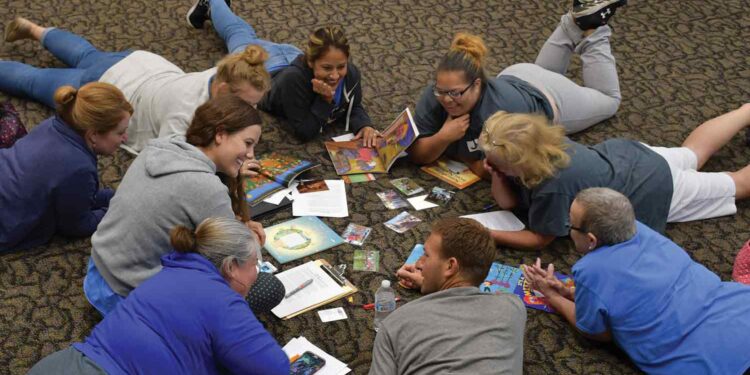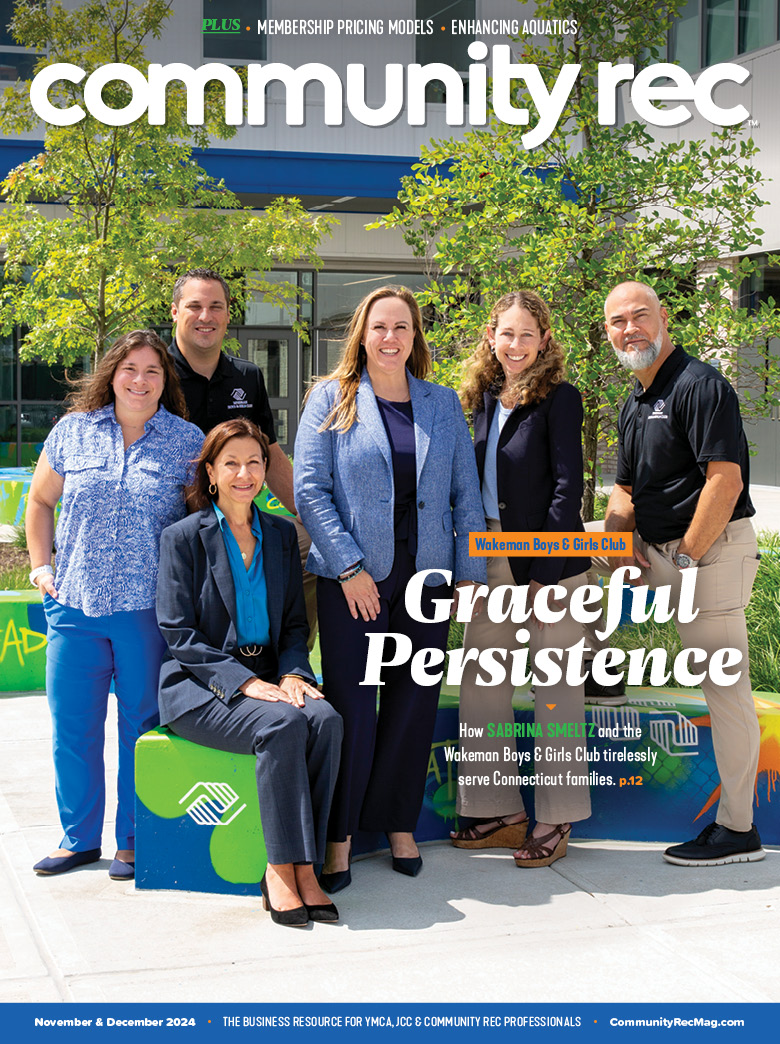The importance of professional development in recreation and what to take into consideration.
When someone starts a new career in community recreation, they are excited and eager to learn all they can. But as months and years go by, how can you ensure your team members continue with that eagerness? A great way is through professional development opportunities.
Encouraging professional development in recreation can help with succession planning, culture, recruitment and retention.
“Professional development supports a culture of on-going self-improvement and looking at new opportunities to serve the community,” said Andrea Allison-Putman, the chief people and inclusion officer for the YMCA of Greater Kansas City in Kansas City, Missouri. “Having a culture of learning and development is attractive to many candidates, especially in a competitive recruitment environment. Training and development are an important aspect of retaining associates who are forward-thinking and want to continuously improve their skills.”
To ensure your staff members are getting on board with professional development, try leading by example. Allison-Putman explained as a leader, you create an environment through words and actions that support and encourage professional development. This includes meeting with staff regularly, asking questions and showing a genuine interest in their current and future plans. Encourage successful leaders to serve as mentors to new and younger staff.
One industry leader who is an example of this is Erin Mills, the chief program officer for JCC Indianapolis in Indianapolis, Indiana.
“I encourage professional development through modeling being a lifelong learner,” said Mills. “I want to learn and expect team members to want to learn along with me. I often will pass on articles or item-specific trainings I think would be of interest to them and keep them up to date on what is happening in the professional world around them. We read, reflect and take action together.”
Mills also spends time building relationships with her team members through helping them learn about themselves, their strengths and their opportunities for growth. Mills encourages any supervisor to have their team members utilize the “StrengthsFinder 2.0” book and test by Gallup and Tom Rath to gain insight in building a professional development plan from understanding their strengths.
“I am also forthcoming about my own personal strengths and growth opportunities, and typically show how our team strengths create group opportunities for continued professional development as well,” explained Mills. “Professional development is a necessary investment in team members, and supervisors must take the time to understand their team members if they are going to help them grow professionally.”
Helping your team members develop new skills is just one benefit of professional development. It can also improve the overall atmosphere of your team.
According to Mills, the created environment acts as a unified platform for all and promotes the message of consistent investment in the individual growth of team members and the collective overall health of the organization. “It is vital to perpetuate an atmosphere of growth or risk the opposite of falling into decline as team members begin to disconnect and seek other employment opportunities,” she said.
If your organization wants to prioritize professional development in recreation, but doesn’t know where to start, Allison-Putman said to keep in mind that professional development is not always formal training. For adults, it also includes new work experiences, special projects, access to mentors and coaches, and other activities to enhance the competencies of leaders.
Additionally, Allison-Putman recommended your professional development should include a focus on building competencies in diversity, equity and inclusion, and be written and reviewed on a regular basis with supervisors, mentors and/or colleagues.
Overall, professional development in recreation is a necessary investment. However, encouraging and facilitating professional development is a shared responsibility that takes commitment across your entire organization.
“Leaders in community recreation have an organic opportunity to build teams with a true understanding of what it takes to work within a community,” said Mills. “Making professional development a priority creates an intentional community of learners who will desire to give back to the organization in multiple ways due to the consistent investments being made in their professional development. Leaders will find encouraging and facilitating professional development is mutually beneficial and an expectation of most young industry professionals.”










